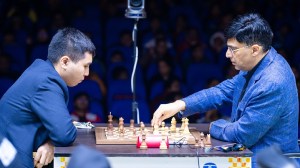George Bush8217;s wars
After another thrilling American election night, the future of US politics is clearer this morning.

After another thrilling American election night, the future of US politics is clearer this morning. But a strong note of contemporary realism is in order. This is the most enticing American election in decades, but 2009 is still many months away. The world of now has business that cannot wait 8212; particularly in Afghanistan. These essential decisions will do much to shape the situation facing George Bush8217;s successor.
In particular, two large and intertwined issues that will shape the post-Bush world cannot be parked to await the new president. The first is the outgoing US administration8217;s final federal budget, submitted to Congress this week, in which Mr Bush proposes to increase defence spending by 7.5 per cent to an annual 515bn pound;262bn. The second is the call by Nato commanders in Afghanistan for 7,500 further troops to reinforce the 42,000 from 39 countries 8212; the bulk of them from the US, Britain, Canada and the Netherlands 8212; who are now in the field.
The Pentagon budget is the largest since the second world war and dwarfs the defence spending of many of America8217;s military allies. US defence spending on this scale will help drive the federal deficit to near-record levels, even though dozens of social programmes are simultaneously facing cuts. It is therefore unlikely to be the last word on the subject before the Democrat-controlled Congress gets to grips with the plans. Even so, the next US president is certain to inherit both a widening deficit and a record level of defence spending 8212; part of which will go into a continuing military commitment in Afghanistan.
While America invests in its military, its Nato allies hesitate8230;
All this is understandable in its own way. Yet Europeans must be clear that Nato reluctance risks a decline in both immediate security and strategic credibility. These stakes should not be underestimated. Our part of the world may be on the threshold of choosing to be spectators in some of the world8217;s major conflicts. There is a case for that 8212; but the case against it is stronger. Either way, it is highly improbable that the next US president will welcome our disengagement any more than Mr Bush does.
Excerpted from an editorial in 8216;The Guardian8217;, February 6
- 01
- 02
- 03
- 04
- 05































